
Archaeology News in Suffolk
A collection of archaeological news, projects and events in Suffolk from Suffolk County Council Archaeological Service
Welcome to our e-newsletter for January 2023
Featured Projects - Rendlesham Revealed
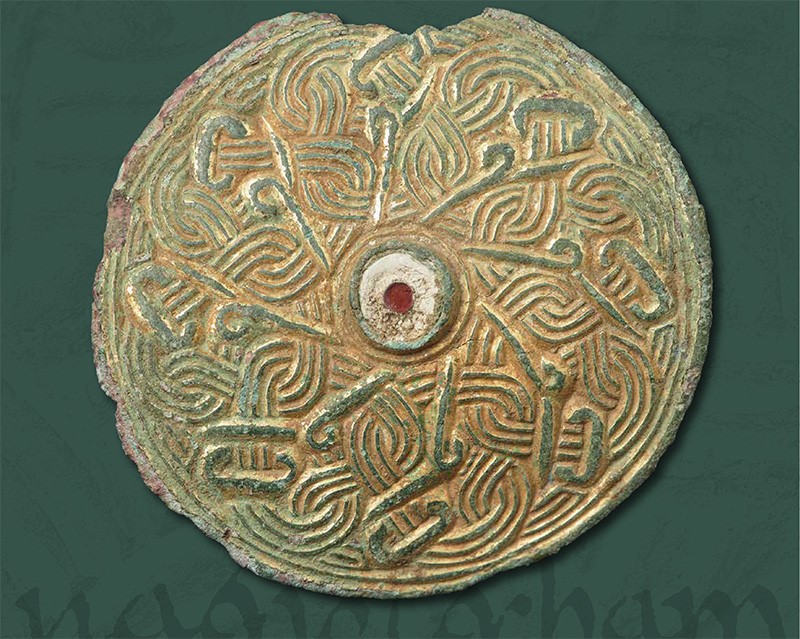
Image: Gilded horse harness mount with garnet and shell decoration, from Rendlesham (© Suffolk County Council)
Rendlesham Revealed Exhibition at Sutton Hoo 23rd March - 29th October 2023
Rendlesham Revealed: The Heart of a Kingdom AD 400-800 is a new exhibition opening at the National Trust’s Sutton Hoo in March, telling the story of an Anglo-Saxon royal settlement in Suffolk, the largest and wealthiest of its time known in England.
Suffolk County Council’s Archaeological Service is curating the exhibition, to celebrate the “Rendlesham Revealed” community archaeology project funded by The National Lottery Heritage Fund.
The exhibition will take visitors on a 400-year journey revealing how the settlement at Rendlesham developed. It will also celebrate the hard work by our amazing volunteers who took part in the recent community excavations.
Thanks to the Suffolk Institute of Archaeology and History for supporting this exhibition and to the National Lottery Heritage Fund for funding this project
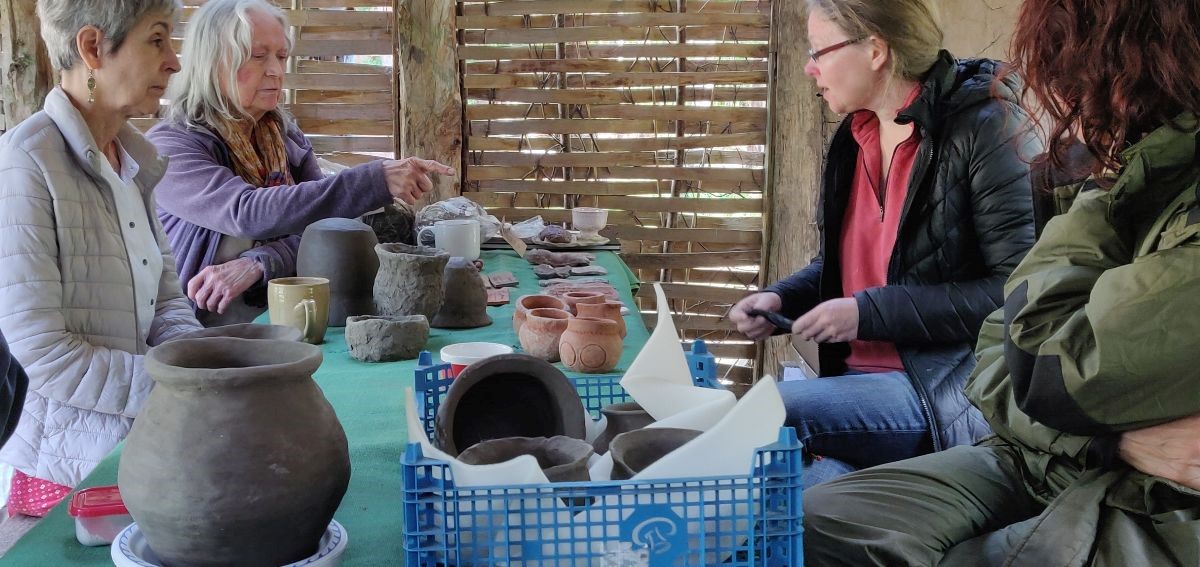
Image: Volunteers sharing the results of their experiments processing raw clay and making replica Ipswich ware pots (© Suffolk County Council)
Being Anglo-Saxon: An experimental archaeology Anglo-Saxon kiln
As part of the Rendlesham Revealed project, the team are working with volunteers from the Anglian Potters to build and fire an Anglo-Saxon Ipswich ware kiln to make replica Ipswich ware pots using local raw clay.
The aim is to use the archaeological evidence to attempt to manufacture Ipswich ware pottery, with the same form and colour as contemporary examples. A kiln is being built based on excavated examples from Ipswich.
You can follow the progress of this experimental archaeology project on our website, where several volunteers have written short articles about their experiments
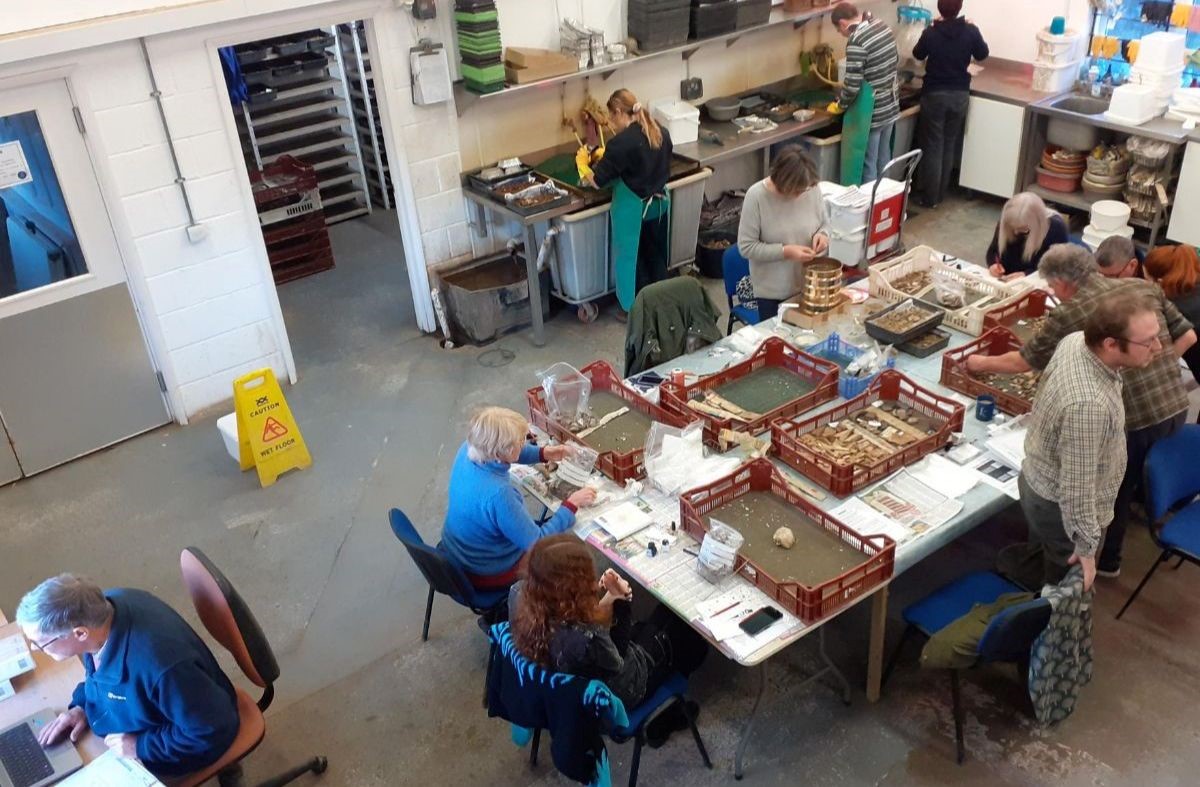
Image: Volunteers processing and recording the excavated material from the Rendlesham Revealed excavations (© Suffolk County Council; taken by Cotswold Archaeology)
Behind the Scenes: Post-Excavation Processing with Volunteers
Following the second season of Rendlesham Revealed excavations last summer, our volunteers have been working hard to process all the excavated material with training from Cotswold Archaeology. The work will continue throughout January and February, to ensure the material is recorded and prepared for specialist assessment in the Spring.
Several volunteers are writing articles about their experience which will be published on our website so keep an eye out.
Please note: the volunteer spaces are fully booked for the post-excavation processing
Rendlesham Revealed Excavations 2023
The next season of fieldwork at Rendlesham will start in September 2023 and local people will again be able to volunteer. This will be advertised in the Archaeology News in Suffolk e-newsletter in July 2023.
Please note: the site at Rendlesham is on private farmland land and has no public access.
Finds Recording in Suffolk
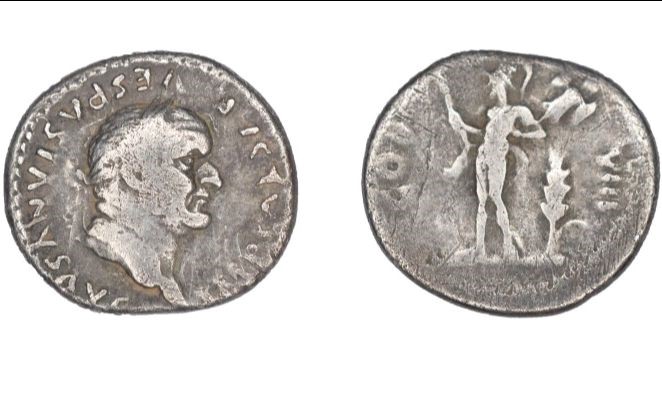
Image: silver Roman denarius (© Suffolk County Council)
Featured Find - Roman silver denarius of Vespasian, Great Whelnetham
This silver Roman denarius coin was found by a local metal detector user in 2019. The coin was issued in Rome and struck for Emperor Vespasian, in the 8th year Vespasian held the office of Consul (between AD 78-79). The obverse features the emperor surrounded by a retrograde inscription IMP CAESAR VESPASIANVS AVG. The reverse depicts Mars, the god of war, wearing a helmet and holding a spear and trophy.
If you have recently found an archaeological object in Suffolk which you'd like identified and recorded, our Finds Recording Team can help. Find out more about Finds Recording here.
Archaeology in Development
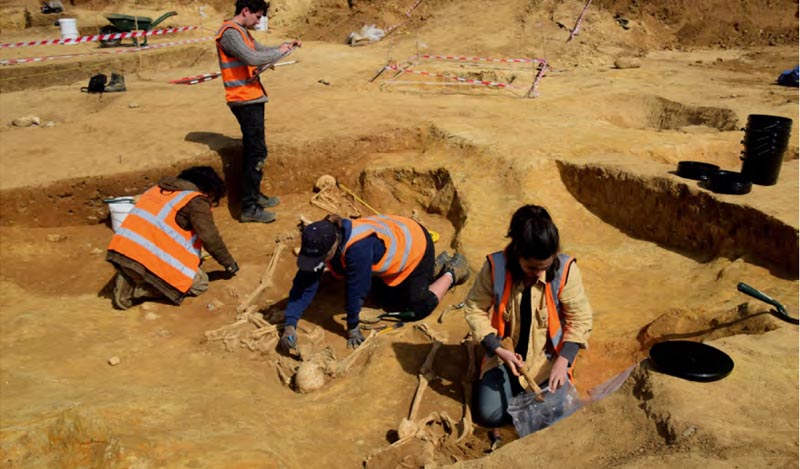
Image: Archaeologists at work, excavating burials at Fentons Farm. (© Wardell Armstrong)
Roman Life and death in Sicklesmere
In 2017 and 2018, two excavations took place in Sicklesmere (Great Whelnetham), recording evidence for significant Roman activity.
At the site known as Erskine Lodge, the excavation revealed a former river channel with 1st-4th century finds and a series of pits and graves, as well as evidence and structures relating to edge of settlement activity. The significant Roman finds assembledge is indicative of military, religious, domestic and industrial activity, supporting the idea that this was a settlement of some importance and longevity.
Nearby is the site known as Fentons Farm, where excavations identified three phases of Roman activity, including a later Roman cemetery with the remains of at least 56 individuals and evidence of deviant burial practices.
All the archaeological remains have been fully excavated and specialist analysis completed. Reports on the results are being completed and will be made public in due course. Suffolk County Council’s Archaeology Service oversaw the excavations. The work was commissioned by Havebury Homes and undertaken by Allen Archaeology (at Erskine Lodge) and Wardell Armstrong (at Fentons Farm)
Thank you for joining our e-newsletter, for those who are new, here's a brief summary of what we do.
We are the main provider of archaeological advice in Suffolk and to promote the conservation, enhancement and understanding of Suffolk's distinctive historic environment, we:
- maintain a record of archaeology and heritage assets, the Historic Environment Record
- provide advice to planners, developers and farmers
- identify and record finds made by members of the public
- curate an archive for fieldwork projects carried out in the county
- publish the results of fieldwork and other research into Suffolk's past